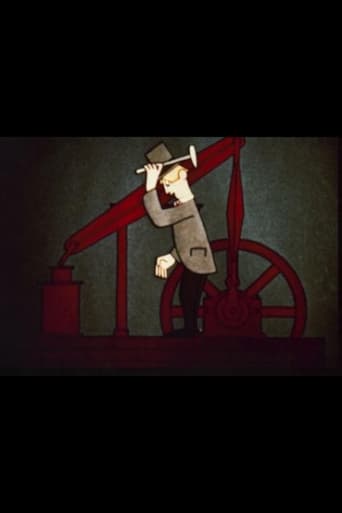Teamwork - Past and Present
This first cel-animated film produced by the NFB traces the development of the master/worker relationships through successive eras of history. Stone engravings record a complete absence of cooperation between the Egyptian ruler and his slaves but, beginning with the Greeks and Romans, there was a gradual change towards recognition of the labourer. With the growth of factories, the trend received a setback, but reasserted itself through the expediencies of World War II, which saw the formation of the first Labour Management Production Committee (LMPC) in Britain. In post-war Canada the film shows LMPCs well implanted in industrial life, with the Industrial Production Cooperation Board giving official government recognition. This first cel-animated film produced by the NFB traces the development of the master/worker relationships through successive eras of history. Stone engravings record a complete absence of cooperation between the Egyptian ruler and his slaves but, beginning with the Greeks and Romans, there was a gradual change towards recognition of the labourer. With the growth of factories, the trend received a setback, but reasserted itself through the expediencies of World War II, which saw the formation of the first Labour Management Production Committee (LMPC) in Britain. In post-war Canada the film shows LMPCs well implanted in industrial life, with the Industrial Production Cooperation Board giving official government recognition. This first cel-animated film produced by the NFB traces the development of the master/worker relationships through successive eras of history. Stone engravings record a complete absence of cooperation between the Egyptian ruler and his slaves but, beginning with the Greeks and Romans, there was a gradual change towards recognition of the labourer. With the growth of factories, the trend received a setback, but reasserted itself through the expediencies of World War II, which saw the formation of the first Labour Management Production Committee (LMPC) in Britain. In post-war Canada the film shows LMPCs well implanted in industrial life, with the Industrial Production Cooperation Board giving official government recognition. This first cel-animated film produced by the NFB traces the development of the master/worker relationships through successive eras of history. Stone engravings record a complete absence of cooperation between the Egyptian ruler and his slaves but, beginning with the Greeks and Romans, there was a gradual change towards recognition of the labourer. With the growth of factories, the trend received a setback, but reasserted itself through the expediencies of World War II, which saw the formation of the first Labour Management Production Committee (LMPC) in Britain. In post-war Canada the film shows LMPCs well implanted in industrial life, with the Industrial Production Cooperation Board giving official government recognition.



 AD
AD